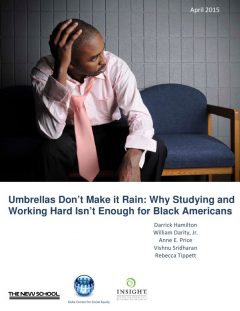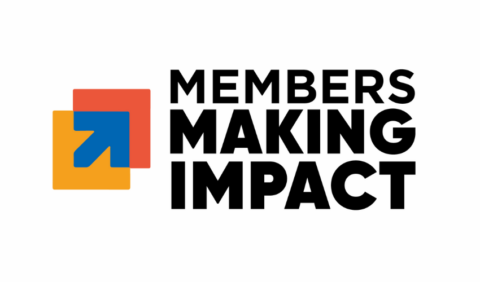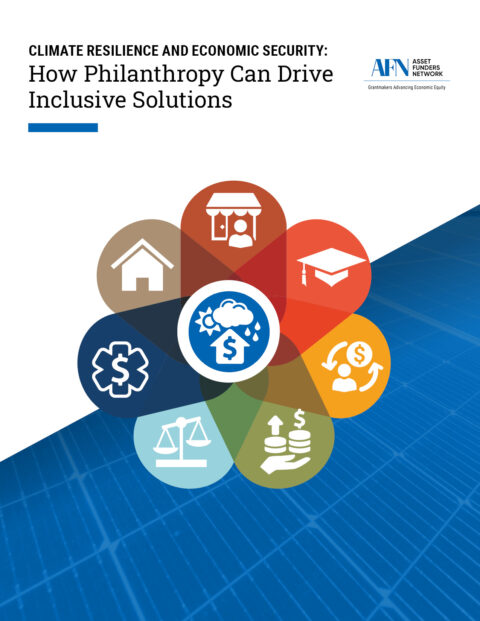A comprehensive understanding of wealth–the value of what you own minus what you owe–demonstrates how vulnerability to economic calamity like the Great Recession can have vastly different consequences on different communities. Differences in wealth accumulation are important to examine because wealth–whether invested in a debt-free education, small business creation, housing or retirement savings–generates opportunity and improves well-being. In addition, wealth provides people with initial capital to purchase an appreciating asset, which in turn, iteratively generates more wealth. Accumulated wealth can also be passed on to children, begetting yet more wealth and opportunity in an intergenerational manner.
Explore this partner research, authored by Darrick Hamilton William Darity, Jr., Anne E. Price, Vishnu Sridharan and Rebecca Tippett, whose project is headed by the The National Asset Scorecard and Communities of Color (NASCC), which uses hard metrics to highlight the economic well-being of people of color in the United States. This research makes clear why making “the right choices” does not always equal “the right outcomes” for communities of color in the United States.
Resources Sponsors
This partner research was sponsored by the following: The New School, The Duke Center for Social Equity, Insight Center for Community Economic Development



